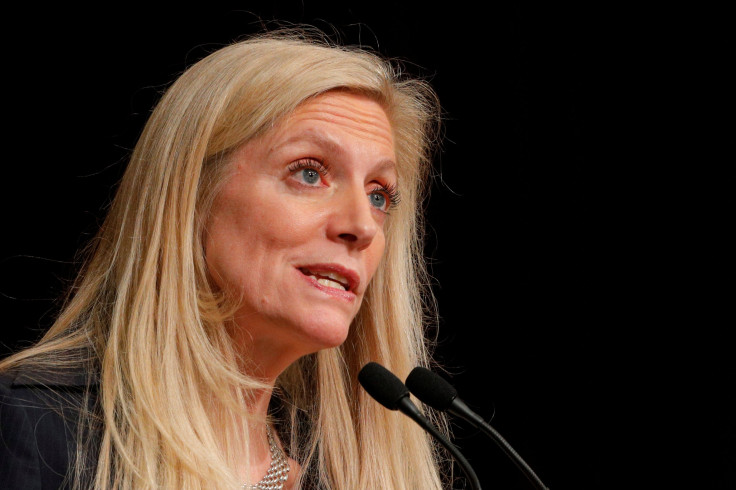Should The Fed Raise Interest Rates? Stocks, Dollar Surge As Central Bank Leader Pushes For A Hike

The economy’s apparent upswing may soon be dampened by a rise in the Federal Reserve’s interest rate, a policy tool meant to keep growth-related inflation from getting out of control.
The U.S. stock market surged early this week, as did indexes of the dollar’s value and consumer confidence, phenomena President Donald Trump was quick to attribute to himself. Weekly jobless claims, meanwhile, fell to a 44-year low.
Following the market rally — which came on the backs of large companies whose former executives have populated Trump’s cabinet, such as Goldman Sachs Group Inc. and ExxonMobil Corp. — Fed Board of Governors member Lael Brainard gave strong signals of an upcoming rate hike.
"The economy appears to be at a transition,” Brainard, who generally errs on the side of caution when it comes to adjusting monetary policy, said in a prepared speech at Harvard University's Kennedy School of Government Wednesday. “Assuming continued progress, it will likely be appropriate soon to remove additional accommodation, continuing on a gradual path.”
The Fed raises its policy rate, which in turn heightens interest rates on mortgages, credit card debt and bonds, as a way to reel the economy in and prevent hyperinflation when growth picks up. Conversely, the central bank lowers the rate, as it did to nearly zero following the 2008 financial crisis, to stimulate increased economic activity. (The Fed does not, contrary to popular belief, print tons of money to influence inflation.)
After the last meeting of the Fed’s monetary policy-making body, which concluded Feb. 1, Chairman Janet Yellen announced that the central bank would hold off on hiking the rate for the second time in a row and the third time since the Great Recession, keeping it within a range of 0.5 and 0.75 percent. At the end of the Fed’s mid-December meeting, not only did the central bank increase the rate by a quarter of a percentage point, but Yellen hinted at three upcoming hikes in 2017, prompting a negative knee-jerk reaction from the stock market. One month before the conclusion of the Fed’s next meeting on March 14, Yellen called holding off on an increase “unwise” in her semiannual testimony before the Senate.
Brainard echoed Yellen in her Harvard speech Wednesday, warning that leaving the interest rate low would give the Fed little room to respond in the event of a sudden economic crisis.
© Copyright IBTimes 2024. All rights reserved.





















